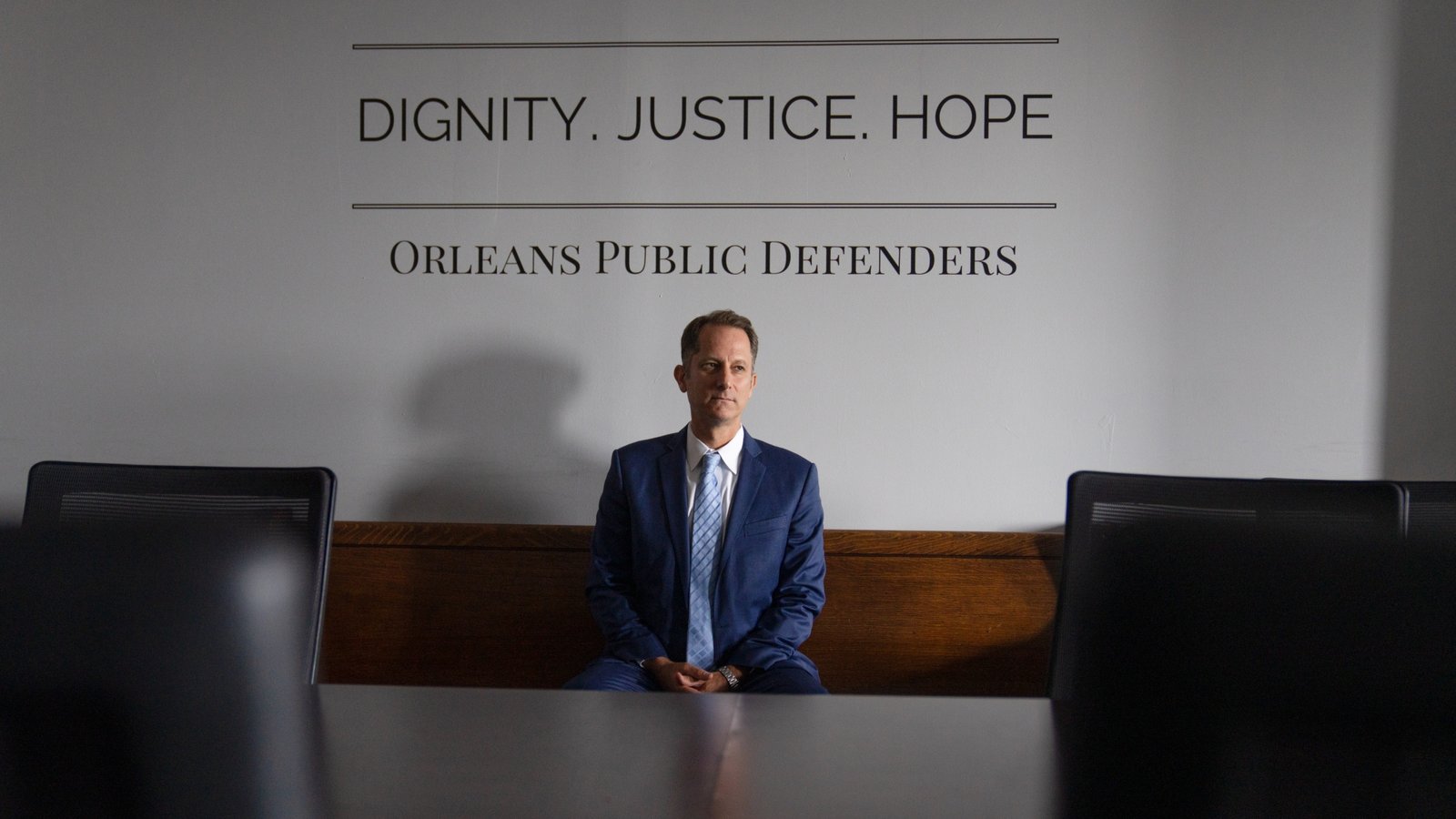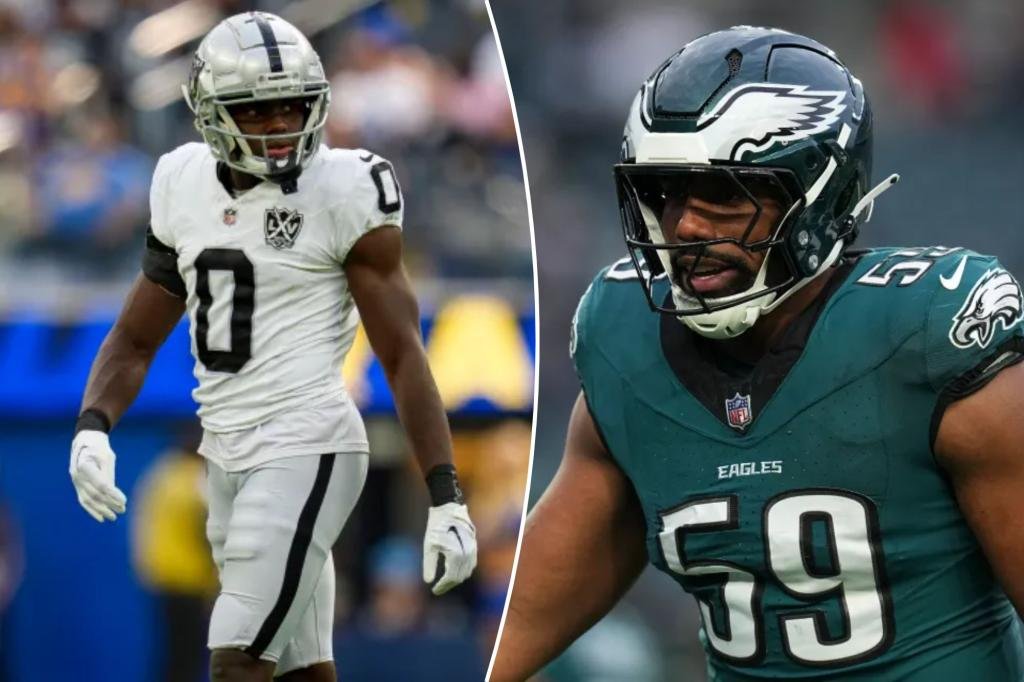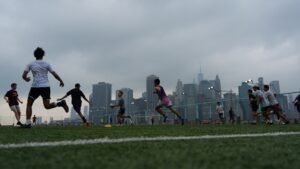
Hurricane Katrina was an incentive for change in the Office of the General defender in New Orleans

When Hurricane Katrina New Orleans hit 20 years ago this month, Megan Garvi was new outside the law school.
She was not even approved to work as a lawyer yet, but she has finished helping the team find thousands of prisoners who were lost in the prison system after the storm.
"There were people who were transferred to different types of prisons and prisons throughout the state. Keep moving people here and there," Garvi recently summoned. "It was really difficult to know the whereabouts of people, what they were in prison, and what was happening."
At that time, it is estimated that New Orleans includes between 6000 to 7,000 people in the local prison, more than any other city in the United States, according to the Vera Institute of Justice. The imprisonment rate in the city was more than Five times The national average of the individual. Thousands of prisoners were transferred to dry lands where the city storm destroyed, but their records did not go with them. This means that for several months, the General Defender Office has struggled with employees to locate and represent his customers.
It was a moment that would determine the profession of Garvi.
"I really think I am a general defender because of Katrina," She said.
Chaos revealed the defects in the criminal justice system in the city that was present in front of the storm, but also cleansing the way for changes, and some visual people, like Garfi, benefited from this opportunity.

Underwater, underwater system
While the storm created a state of emergency, long -term problems made issues worse. General defenders worked only in part -time and did not know who their customers are until their appearance in the first court, which may take place after weeks or months of arresting someone.
These lawyers also had to share computers and phone lines, and the system was funded through traffic tickets.
Then, Hurricane Katrina achieved landing.
Ronald Marshall was in the Aurelians’ diocese prison that day, which also coincided with his thirty -first birthday.
He and thousands of other prisoners survived for several days without any help.
"The air conditioner set out, everything set out," He recalls in front of the closed prison building, where he was detained. "Shift completely, no lights."
Marshall said that guests burned children’s oil into light lamps. Thick black smoke wrapped in the airways. They spent about four days without meals.

Marshall was transferred to New Orleans from a prison in Louisiana, Upsatat, to appoint the court. He was challenging his condemnation and a 50 -year -old armed theft. This challenge was not successful until 2021, when the judge cleared his punishment.
From the window of his cell in 2005, Marshall could not only look at a courtyard, so he did not know how much the damage caused by the storm.
"On the fourth floor men can see the city, so they put signs in the windows for us, allowing us to know, “O man of the city under the water”, “" Marshall said.
Nearly a week later, he and the other men finally evacuated the front door of the courtroom connected to the prison.
He said that the water reached the top of the steps, at an altitude of 15 to 20 feet. Hands and chains were backed, prisoners have been loaded on rescue boats and transported to a bridge on the highway.
"It was a scene from the science fiction movie," He called Marshall. "They had (dead) bodies, such" So they will not float away.
"It was terrible, man. At some point you can see crocodiles in water."
Marshall was finally transferred to a prison in Florida.
"Four months have passed before I heard from anyone; My family, anything," He said.

In the working criminal justice system, general defenders know who their customers are from the beginning and will be able to reach their customers more quickly. This legal defense is a constitutional right. But nothing about the criminal justice system was working in the way it was supposed to be during the emergency.
"The entire court system collapsed," Ross Foot, who retired as a judge in Alexandria, Los Angeles, said a year before hitting the storm. "The files and all the evidence were under 4 feet of water."
Alexandria is located about 200 miles northwest of New Orleans, so the storm did not reach Foot, but it remembers what happened when hundreds of people imprisoned were drove there without records or identification.
"We did not know what was charged," Foot said. "We did not really know who they were. We did not know if they were before the trial or spent time."
Many of these people who were transferred across the south have not been accused of misdemeanor, according to Harvard University’s law professor Ron Sullivan.
"Speculation, and it turned out to be correct, that most of them were for the quality of life quality: open -ending containers, hooking, as you know, all kinds of things," Sullivan got.
After Katrina, New Orleans Sullivan was appointed on a single -year mission to renew the general defender system.
The transformation, two contracts in making
The current Orleans defenders office is the city center. It takes three floors and is used about 60 lawyers.
Garvi said that the difference between her early days as a general defender in the city after Katrina and now "Night and day."
"We got an office, we rented the full -time people, and we had training," She said. "Now, we represent seven days a week, even on holidays. We have investigators. We have social workers and we return to work immediately."
All this change has been in business over the two decades since Katrina.

"It was a living experience, breathing, starting, and a group of people trying to do what appeared at that point that cannot be overcome," Danny Engelberg, who is now running the office as head of the public defender, said.
Angelberg arrived in New Orleans in 2007. He said the team faced a dilemma: doing a good job, the office needs funding. To get financing, they needed to show that the office can do a good job.
"So, we did it gradually," He said. "For example, in our customer services department, we got a few customer defenders and a social worker on a grant, and this amazing group … did a really great job. Then we managed to obtain a little local financing, and thus we invested in some lawyers, investigators, other defenders or another social worker."
Engelberg worked to persuade the city that the public defense was more than a constitutional guarantee. It was also a good investment, because locking people is expensive, and sometimes New Orleans had the highest rate of prison in the country.
"This is a confusing mind and was really one of the biggest engines needed for instability, and I think it is often a feeling in our society," Engelberg said.
Jason Williams, a lawyer for the Orleans Parish region, said the city was also the capital of excess – meaning that it was closing many innocents.

Over the years, the number of people who were imprisoned in the local prison moved from about 7,000 before Katrina to about 1400 today.
Main axis
In 2020, the city council was unanimously voted to grant the Office of General defenders in the symmetry of the provincial lawyer. The symmetry is 85 percent, because the provincial lawyer deals with some cases that do not include general defenders.
Williams was the head of the city council when the law was issued. He said that it took some work to persuade taxpayers that their money should be spent on defending the poor accused of crimes.
"Many audiences were asking to look at the nuances of what we were talking about," Williams said. "This was not related to taking a pile of money and giving it to the criminal defendants. This was about making sure that we have fair stadiums and safe streets."
"We cannot have a criminal justice system that says: “Where there is smoke, there must be a fire,”" He added.
The provincial lawyer Williams became in 2021. He said that the financing is equivalent to this job more difficult, but this is the point.

"It makes it difficult for prosecutors to obtain condemnation when you have a lawyer who represents the defense that is well paid or with a general defender office that is well connected." He said. "It certainly makes our mission to prove the sin more difficult, but it makes the system more fair."
Engelberg said it should not be surprising that the Public Prosecutor wants to face a good defense.
"I think if you are in the legal system at all, you want the legal system to work on all feces. There is the public prosecutor, there are American defenders and defense, then there are judges. And if the stem of one of the stool is bad or not working, the stool does not withstand," Engelberg said.
Engelberg and Garvey say there is still room for improvement in the way to defend people accused of crimes in New Orleans. The office can use more lawyers and a larger space.

But Garvi said that her experience that helps rebuild the criminal justice system in New Orleans over the past twenty years has taught her a valuable lesson – that "order" It is just people.
Today, she is the only public defense lawyer in New Orleans who was there in the days after Katrina. She said that the storm instilled a spirit in the office that remains to this day.
"It is up to us, that Pak stops with us, so that we cannot trust the system in correcting itself, and that the constitution does not impose itself," She said. "I know I look like a flag. It is the fourth of July, but this is exactly, 100 percent, what I think."
Copyright 2025, NPR













Post Comment